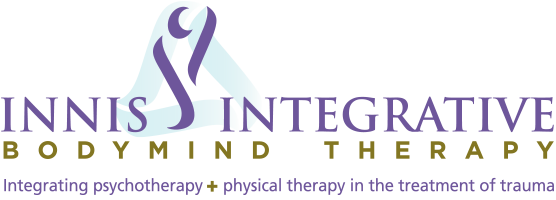Grief and loss taking over your life? Reach out. Find the support you deserve.
Are You Grieving the Loss of a Loved One or the Loss of Yourself because of Chronic Illness or an Injury?
Does your life feel clouded over and heavy with grief? Are you suffering from a chronic physical, mental, or emotional condition that leaves you struggling with a persistent sense of loss? Your grief may be associated with multiple losses, such as the loss of personal power, self-esteem, independence, livelihood, clear family roles, and a familiar lifestyle. Or, even worse, you may continue to experience serial losses, one thing after another, and now struggle to feel stable and secure in so many parts of your life. Do you feel as though you are walking a terrifying and uncertain fine line between your past and your yet unknown future? Do you wish you could talk about your difficult situation with someone who would listen with empathy, care, and understanding? You can! Contact Jeri Innis for an impartial, compassionate guide to accompany you through your grieving process. Email her at jeri@innisintegrativetherapy.com with any questions regarding this all too often overwhelming process.
Are you feeling shattered? Maybe you are experiencing feelings of purposelessness, helplessness, or hopelessness. Perhaps you move through your days with a sense of numbness and detachment, even when doing things that once made you happy. Or, you may find yourself grappling with irritability, bitterness, or anger. Perhaps you’ve grown tired of well-intentioned friends and family members suggesting ways to “get over it,” “cheer up,” and move on. It may seem as though your losses are invisible to those around you because on the outside, you might look fine. Maybe you dread pity or rejection and feel the need to put on a brave face, even with your loved ones. You might be finding it difficult to get the support you need.
If You Feel Consumed by Grief, You Are Not Alone
Struggling with a chronic mental, physical, or emotional condition can feel isolating, frustrating, and overwhelming. Experiencing anger, resentment, sadness, denial, and more are all completely normal reactions to a difficult situation. Regardless of the specifics of your experience, if you are now dealing with the complications and challenges of a chronic condition, you are likely mourning the loss of who you were and what your life was like before its onset, as well as the possibilities that might now seem beyond your reach.
In addition to the pain you are experiencing, the ongoing changes that come with chronic conditions can also cause stress and strain in your relationships. Most well-meaning friends and family members may not really know how to support you and might not feel comfortable with the related changes in their own lives. This pervasive stress can result in lapses in communication, persistent experiences of disappointment, or even ongoing conflict. You may feel abandoned, unheard, and misunderstood, even by those you trusted the most.
Grief is completely normal following any type of loss, and everyone grieves differently. However, unresolved grief can lead to depression, anxiety, and an overwhelming sense of fear, all of which can have a profound impact on your career, relationships, and overall wellbeing. Many individuals don’t understand the importance of seeking grief counseling. The good news, however, is that with the help of a compassionate, experienced grief counselor, you can learn new ways to manage your losses, develop greater balance in your life, and regain the closeness you yearn for in your relationships.
Grief Counseling Can Help You Move Forward
You may be familiar with the five stages of grief. The first stage is denial, or unwillingness to admit that a chronic illness or condition exists. As denial fades, anger can surface in its place. You might feel angry with medical personal, family members, yourself, or fate. Bargaining is often employed at this point – bargaining with doctors or even God. When the reality of the diagnosis finally sinks in, depression, chronic sadness, and hopelessness can set in. This phase can zap your energy, leaving you feeling unmotivated to practice medical compliance and good self-care. The final stage is acceptance, when you come to terms with your condition and find ways to live with it.
However, while these stages might sound smooth and linear, coping with grief can be very complicated. Many people find themselves lost and meandering, often taking one step forward and two steps back. This is especially true with accepting chronic, often deteriorating conditions. I understand that you are a unique person, with unique needs and desires that may not fit into an orderly series of stages. Grief and loss counseling can help you develop the effective skills needed to navigate your own road toward greater relief and peace.
As a skilled grief psychotherapist, I can help you feel safe, supported, and heard as you move through your grief. In sessions, you can identify your innate strength and the natural coping tools that have helped you so far. Once you know what you are already doing right, you can offer yourself compassion, gratitude, and positive reinforcement. In addition, expressing difficult emotions in a safe, supporting, nonjudgmental environment can be very cleansing and healing. You can find release in embodied expressions of despair, anger, disappointment, and other stuck emotions causing disempowerment and exhaustion.
In sessions, I utilize evidence-based mindfulness practices, which can be monumental in charting a new course through the rough waters and harsh landscape you are facing. Mindfulness practices, along with meditation, can offer you new tools for learning better ways to regulate your emotional distress, calm your nervous system, become more embodied, and develop a fuller sense of presence and purpose. You can change the way you engage with your inner experiences, including your experience of suffering.
Chronic illnesses can put a severe strain on relationships, whether between family members, friends, or romantic partners. Often, the loved ones who are well find themselves in the position of caregiver, while the other feels dependent, which creates a new imbalance in the relationship. Accepting that a loved one is no longer able to do the same activities can be a profound loss to everyone in the family or friend group. Feelings of guilt, resentment, and powerlessness can arise, leading to frustration and lack of communication. As you learn new ways to communicate your needs and be present in your life, your friends and family members may also feel the benefits of grief therapy.
Grief counseling can help you discover greater tolerance for discomfort and richer self-compassion, promoting a shift in attitude and perspective that allows you to see your chronic condition through a different lens. You can regain a sense of control and mastery over your life, focus more on what you can do, and begin to develop new interests, new structures, and new routines, You don’t have to feel defined by your chronic condition.
You may sense that you could benefit from grief therapy, but have questions or concerns…
The idea of acceptance really rubs me the wrong way.
You might worry that if you accept your condition, you might just cave in and lose all control over who you are. That is completely understandable, and a worry I hear from my clients all the time. But the truth is, as you build self-empowerment and learn ways to better manage whatever comes along, your perception of control can shift. You can’t control what happens in the world around you, but you can control how you respond. Practicing acceptance can help you feel less helpless and more resilient, giving you the peace you deserve.
I have so much to deal with right now. Adding one more thing to the mix is overwhelming.
It may be that everything feels overwhelming to you right now. However, refusing the support you need now may lead to a more entrenched, complicated form of grief, which can be more difficult to manage over time. Having an experienced, compassionate grief counselor to listen to what you are going through is one of the most comforting and affirming gifts you can give yourself.
This emotional aspect of care often gets lost in our traditional medical model. Even the kindest, most generous practitioners just don’t have the time to sit and listen deeply to your fears and concerns. But, your body, mind, and emotions are all profoundly linked, and reaching out for help can have an amazing impact on your overall healing and sense of self. As you work through your grief, you may find that everything else feels a little more manageable.
How much will grief counseling cost?
If money is a concern, I am happy to discuss ways to make sessions affordable for you. While grief counseling does cost money, I encourage you to consider therapy an important investment in your wellbeing. Your health and happiness is worth it. By entering grief and loss counseling with a willingness to engage in the process and develop new skills, you can find profound relief and peace.
With Grief Counseling, You Can Believe in Your Future Again
No matter what condition you’re facing, you don’t have to feel as though your life is over or that you need to go through it alone. I invite you to contact me here for support and guidance as you make your way through your grief recovery journey.








